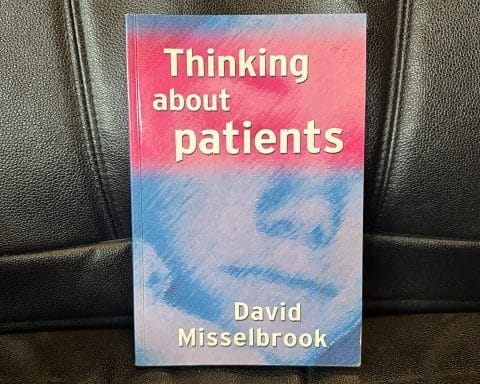
Who has the ability and the time to think about what matters to humanity?
Some believe that it is philosophers who have the innate ability to think about such matters and that the ability cannot be taught. Academic philosophers have the time to think but can seem foreign. They communicate using an abstruse language, and have their own strange ways. David Edmonds uses the life story of Derek Parfit (1942-2017) to guide and entertain us through one man’s journey in the land of philosophy and to explain the landscape and its people.
The first part of Parfit’s life was full of life, the second and increasingly eccentric part was overfull with his missionary zeal for moral philosophy. Eventually he would end up almost unrecognisable from the Parfit of his youth. We follow Parfit from China where he was born of missionary doctor parents, back to a UK education as a high achieving and popular scholarship boy at Eton. His intelligence and charm opened most doors for him. An abundance of superlative references included, ‘perhaps the most impressive thing about him is that despite his considerable talent, he has remained a modest and charming person’. This earnt him more invitations than he could accept. He does use an unsolicited invitation to intern at the New Yorker magazine, a scholarship to study undergraduate history at Balliol College, Oxford, and a Harkness Fellowship in the US. Then and for the rest of his life he switched his focus to philosophy and had a succession of fellowships at All Souls College, Oxford, with regular invitations to US universities. All the time he was becoming both more bizarre and more dedicated to climbing different sides on the mountain of philosophical thinking to get to that one single view and understanding at the top. He never reached the peak but as we follow his life story climbing the mountain, more of the vista of modern philosophy is revealed to us. We get an overview of the flow of thought in Western philosophy.
Philosophy often considers the same ancient problems studied since Plato. Parfit added new problems like ‘the non-identity problem’ to the discipline.
Most people have never heard of Derek Parfit. He was a moral philosopher whose reasonings have probably influenced the way many of us (the non-philosophers who are stuck in the foothills of the mountain) think today. He described his work as ‘thinking about what matters.’ This included personal identity, rationality, ethics and the nature of our concern for future generations. Parfitt once summed up the entire history of ethics in four steps 1. Forbidden by God, 2. Forbidden by God, therefore wrong, 3. Wrong, therefore forbidden by God, 4. Wrong. He believed we could apply reason and logic to ethics without the distorting influence of God. He would say that secular ethics was a toddler taking its first stumbling steps. Unfortunately, not all branches and problems of philosophy can be defined so succinctly but need longer explanations with illuminating thought experiments to tease out the nature of the dilemmas and explore ethical theory versus practical ethics. Although he had a fifty-year career as an academic philosopher, he only wrote two books ‘Reasons and Persons’, and ‘On What Matters’ with about 50 other papers. Philosophy often considers the same ancient problems studied since Plato. Parfit added new problems like ‘the non-identity problem’ to the discipline. This considers our moral obligations regarding issues like safeguarding our planet from the climate and ecological crisis for the benefit of future generations (i.e., the people who do not exist yet).
These and other arguments are all discussed and well explained in the book. Beyond the book there are many videos on the web of Parfit himself and others explaining his thinking.
Despite his lack of quantity of published outputs his quality marks him as one of the most influential philosophers in the last century. Parfit forfeited many of the routine human pleasures trying to eke out enough time to resolve all the important matters that concerned him. His change from being a talented, charming, selfless and normal youth and young man to a fanatical, selfish, benevolent and eccentric older man marks him out as a case study of a possible side effect when you have both the ability and the time to think about what matters to humanity.
Featured book: David Edmonds, Parfit -A philosopher and his mission to save morality, Princeton University Press, Hardback, ISBN 9780691225234 408 pages £28
Featured photo by Rohit Tandon on Unsplash









Thanks for bringing Parfitt to a wider audience Terry. As you say, a really important figure and, like Van Gough, I think we will hear much more of him posthumously. I’m not so sure re “Despite his lack of quantity of published outputs...” The three volumes of “On What Matters” run to 1,830 pages and take up over 6 inches on my bookshelf!